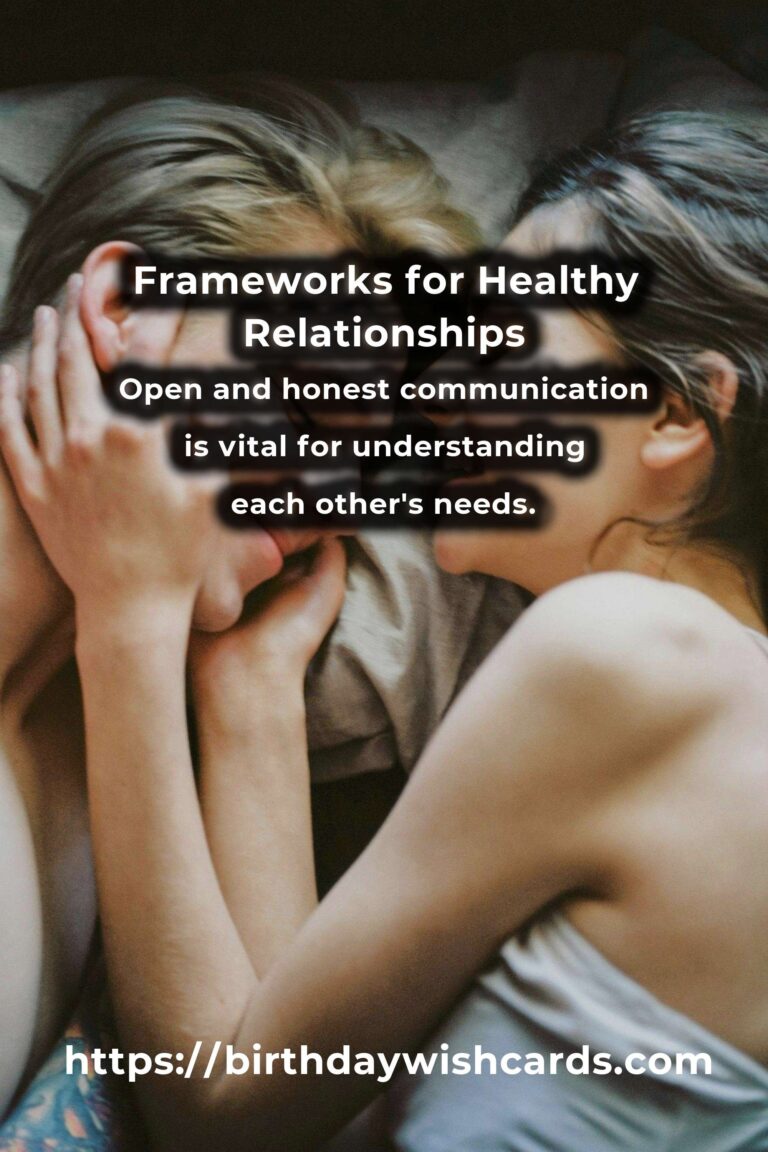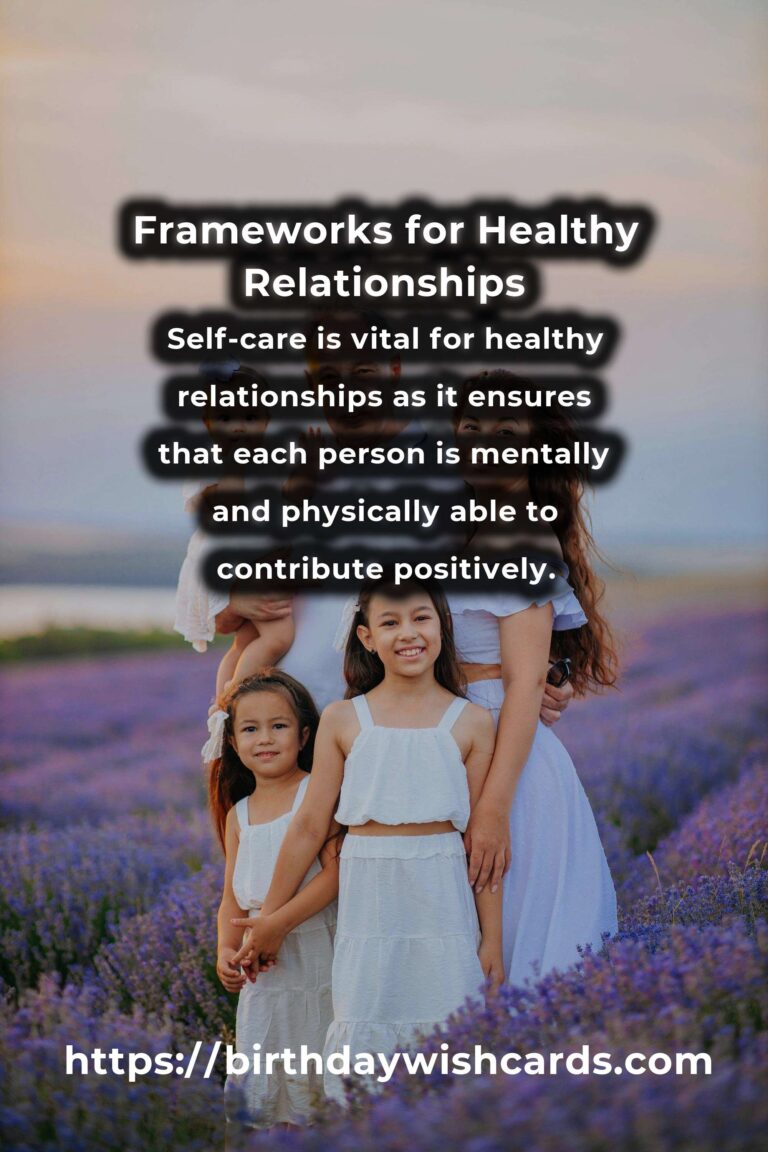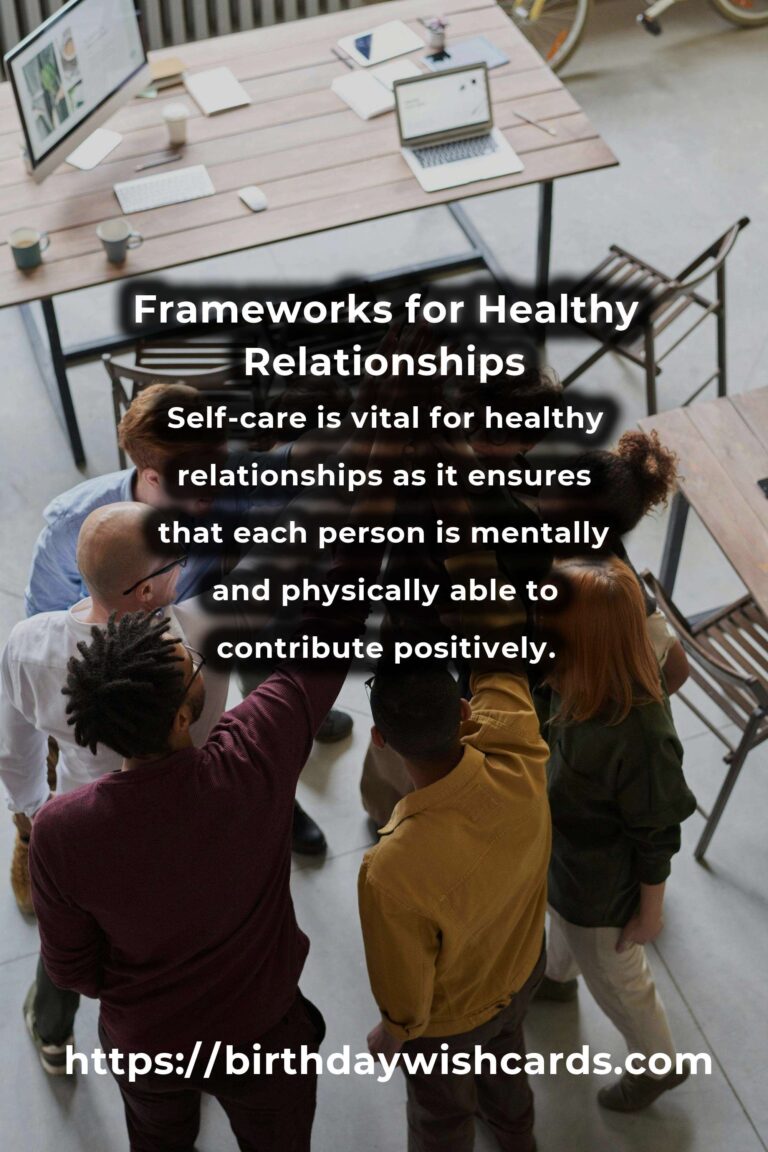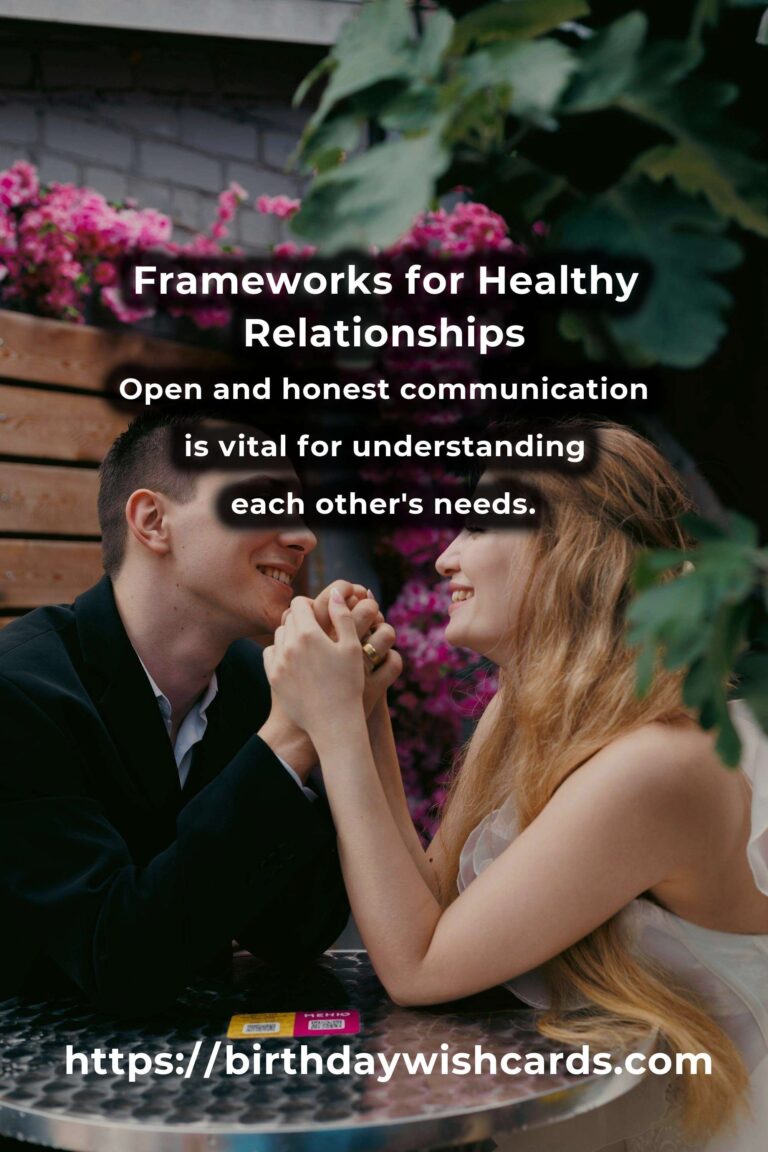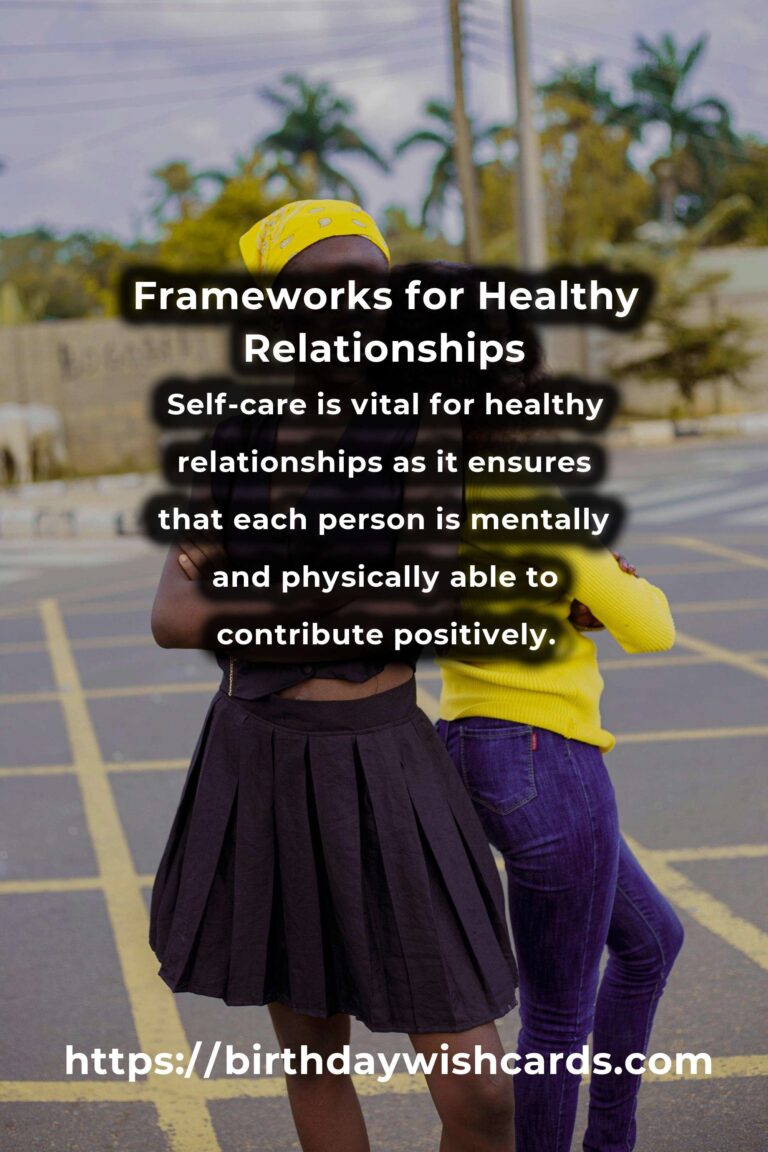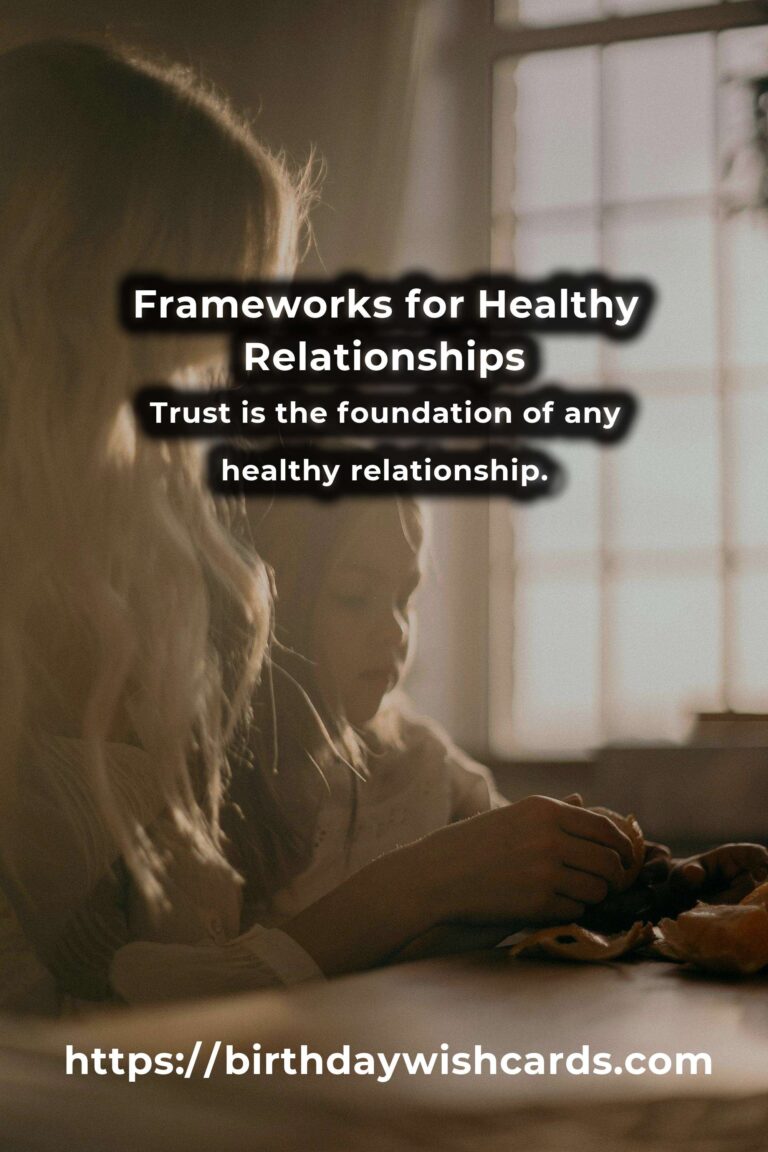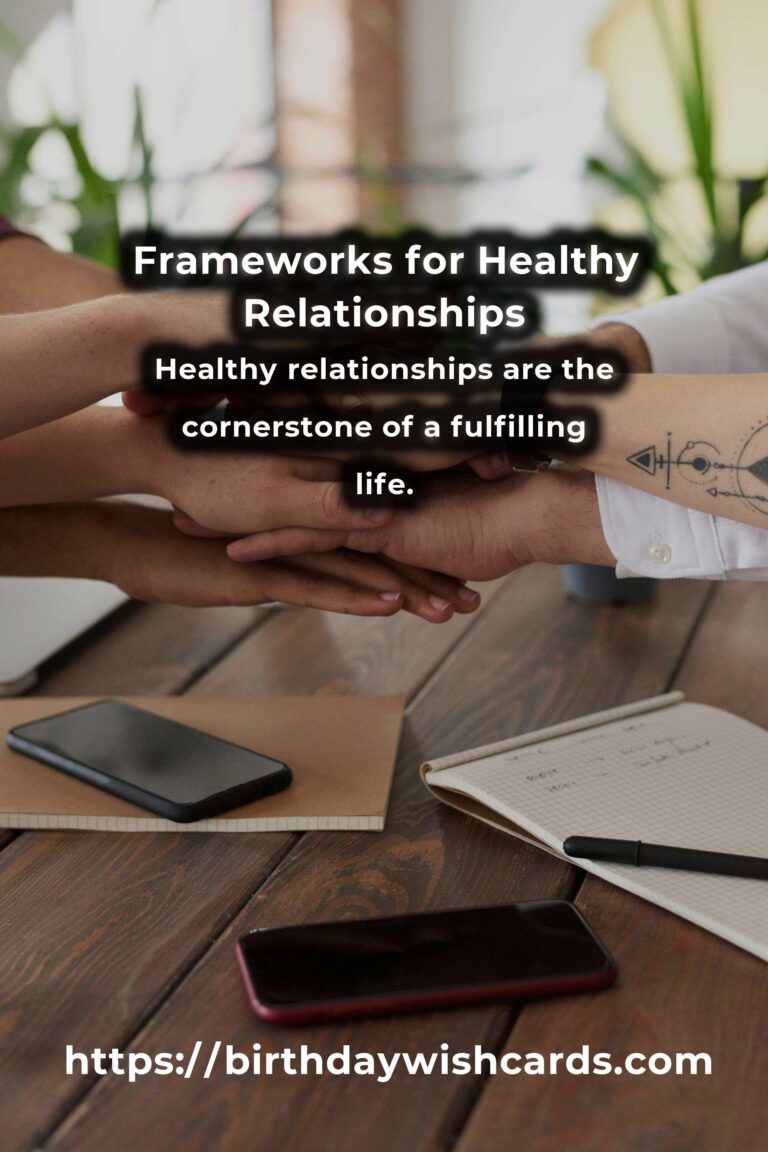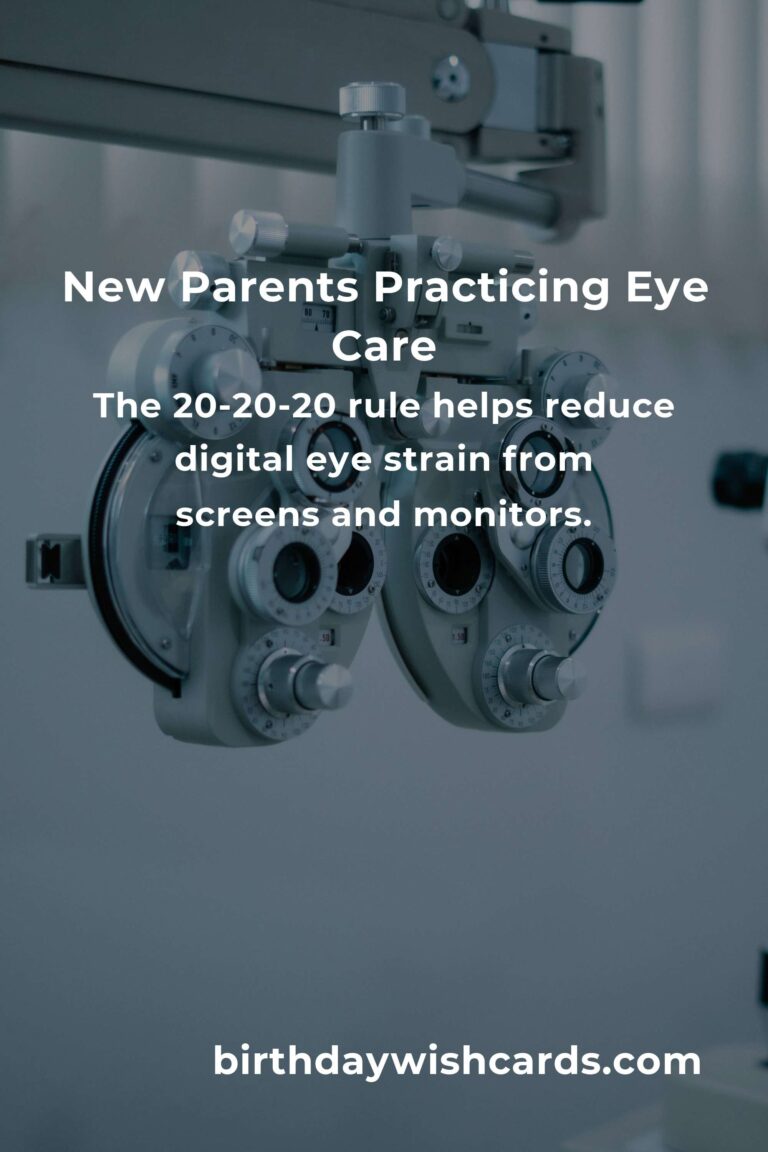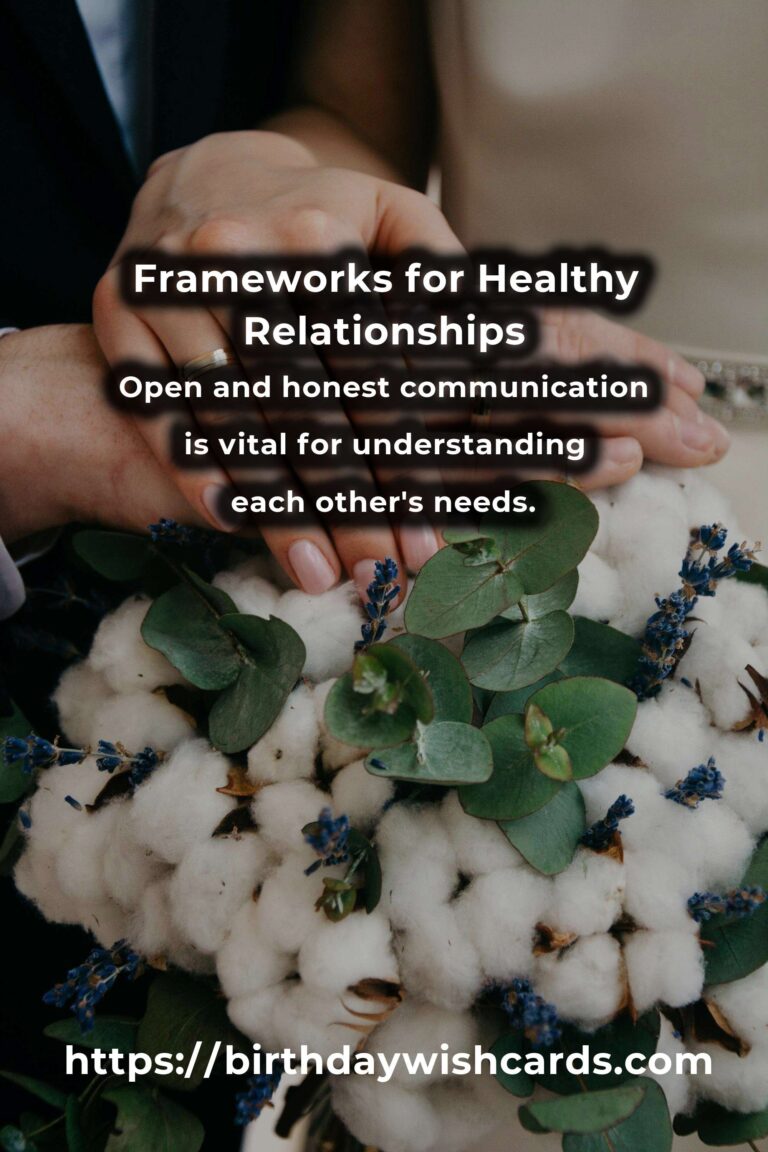
Healthy relationships are the cornerstone of a fulfilling life. Whether it’s with friends, family, or romantic partners, the quality of our relationships significantly impacts our well-being and happiness. In this comprehensive guide, we will explore various frameworks that can help cultivate and maintain healthy relationships.
Understanding the Importance of Healthy Relationships
Relationships provide emotional support, companionship, and a sense of belonging. They are essential for mental health and can even contribute to physical health. Studies have shown that people with strong social connections live longer, have lower rates of anxiety and depression, and experience better overall health.
Key Components of Healthy Relationships
There are several key components that constitute a healthy relationship:
Communication
Open and honest communication is vital for understanding each other’s needs and resolving conflicts. It involves active listening, expressing thoughts and feelings clearly, and being patient and respectful with each other.
Trust
Trust is the foundation of any healthy relationship. It involves being reliable, honest, and keeping promises. Trust builds over time and can be easily broken, so it must be nurtured consistently.
Respect
Respecting each other’s individuality, boundaries, and opinions is crucial. It means valuing each other as equals and recognizing each other’s contributions to the relationship.
Support
Providing emotional, mental, and sometimes physical support helps partners feel valued and understood. Support can be shown through encouragement, empathy, and being there when needed.
Frameworks for Building Healthy Relationships
The Gottman Method
Developed by Drs. John and Julie Gottman, this method focuses on enhancing relationship satisfaction through understanding and empathy. It emphasizes the importance of building a culture of appreciation and respect, managing conflicts constructively, and nurturing positive interactions.
Emotionally Focused Therapy (EFT)
EFT is based on attachment theory and aims to create secure emotional bonds. It involves recognizing and expressing emotions, understanding emotional triggers, and fostering a deeper connection through empathy and responsiveness.
Nonviolent Communication (NVC)
NVC, developed by Marshall Rosenberg, is centered on empathetic communication. It encourages expressing needs and feelings without blame or judgment, fostering an environment of mutual respect and understanding.
Strategies for Maintaining Healthy Relationships
While frameworks provide a structure for healthy relationships, ongoing effort is required to maintain them. Here are some strategies:
Regular Check-ins
Schedule regular times to discuss the relationship, share feelings, and address any issues. This practice helps prevent misunderstandings and keeps both partners aligned.
Quality Time
Spending quality time together strengthens bonds. It can be as simple as sharing a meal, taking a walk, or engaging in a shared hobby.
Conflict Resolution
Approach conflicts with a problem-solving mindset. Avoid blame, stay calm, and focus on finding solutions that are acceptable to both parties.
The Role of Self-Care in Relationships
Self-care is vital for healthy relationships as it ensures that each person is mentally and physically able to contribute positively. Taking time for self-reflection, maintaining interests outside the relationship, and managing stress are essential components of self-care.
Conclusion
Healthy relationships are built on communication, trust, respect, and support. By utilizing relationship frameworks and strategies, individuals can foster connections that are fulfilling and sustainable. Remember, every relationship is unique, and it’s important to find what works best for you and your partner.
Healthy relationships are the cornerstone of a fulfilling life. Open and honest communication is vital for understanding each other’s needs. Trust is the foundation of any healthy relationship. Regular check-ins help prevent misunderstandings and keep both partners aligned. Self-care is vital for healthy relationships as it ensures that each person is mentally and physically able to contribute positively.
#HealthyRelationships #Communication #Trust #SelfCare


